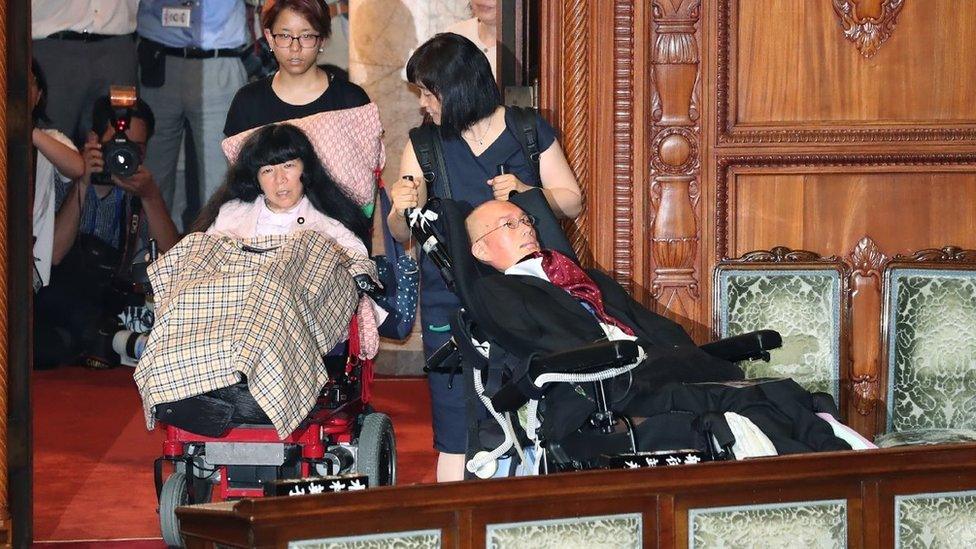Tokyo Paralympics: The lowdown on being disabled in Japan
- Published
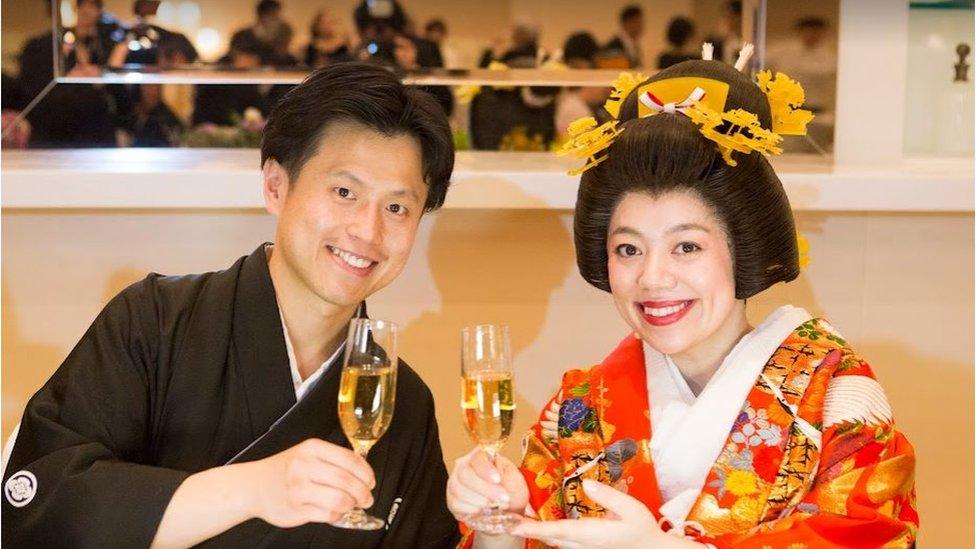
Jeff and Mizuki Hsu wearing traditional Japanese outfits
Tokyo is a fast-paced city full of high rise buildings and a public transport system to envy. Some people call it futuristic - but how does the home of the delayed 2020 Paralympics shape-up for disabled people? We talk to three disabled residents to get the lowdown.
Moon Rider
Mizuki Hsu, 35, calls herself a moon rider, a term she coined to represent adventurous wheelchair-users who like to travel and explore.
While she says cities are busy and reasonably accessible she finds people in the country have more time to stop and help if she needs a hand.
Japan has focused on creating a "barrier-free" country for disabled people since it was awarded the Games in 2013.
But Mizuki believes stigma is still a problem. "I feel it's very common that people gaze at me in public and some strangers tell me how pitiful I am.
"Inclusion of people within the community still has a long way to go."
Emigrating to Japan was a breeze
For Josh Grisdale, 40, his outlook on disability in Japan is different having grown-up in Canada.
Josh first visited Japan in 2000 after being inspired by a teacher at his high school.
After learning the language he moved there in 2007 and in 2016, at the age of 35, became a citizen, relinquishing his Canadian passport.
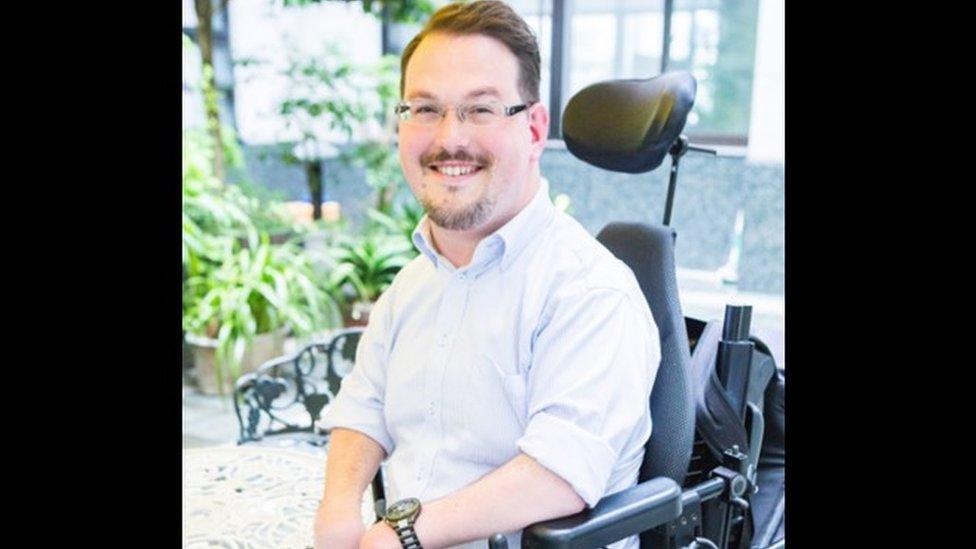
When he applied for citizenship he was worried that being disabled might hamper him but says the positive reaction "blew me away".
"You hear all these horror stories of people trying to emigrate to the States or Canada and because they need to use the healthcare system they've been denied permission. I wasn't once asked about my disability, which I think was just amazing."
Josh, who runs the travel blog Accessible Japan, was able to use the welfare system as soon as he was registered. His needs were assessed within his ward of Edogawa and he was issued with a disability "passport" citing his requirements.
He was allocated funding for carers, and equipment such as a wheelchair.
On a side note, one way Japan raises money for disability services is a little like how the UK raises money for its "good causes" - through gambling. Japan doesn't rely on six balls and a bonus ball, instead it uses the proceeds from the popular sport of boat racing.
High rise
Mizuki grew up in Kyoto, west Japan. As a toddler she lost the use of her legs following a mysterious illness.
"My mom told me that she thought she would need to always be with me and carry me place-to-place."
That isn't what happened but it did raise challenges.
Tokyo has almost 14m residents, for comparison, London has 9m. Buildings are often built upwards, not outwards, to accommodate the population.
As a result, anything, including public services, could be spread across multiple storeys.
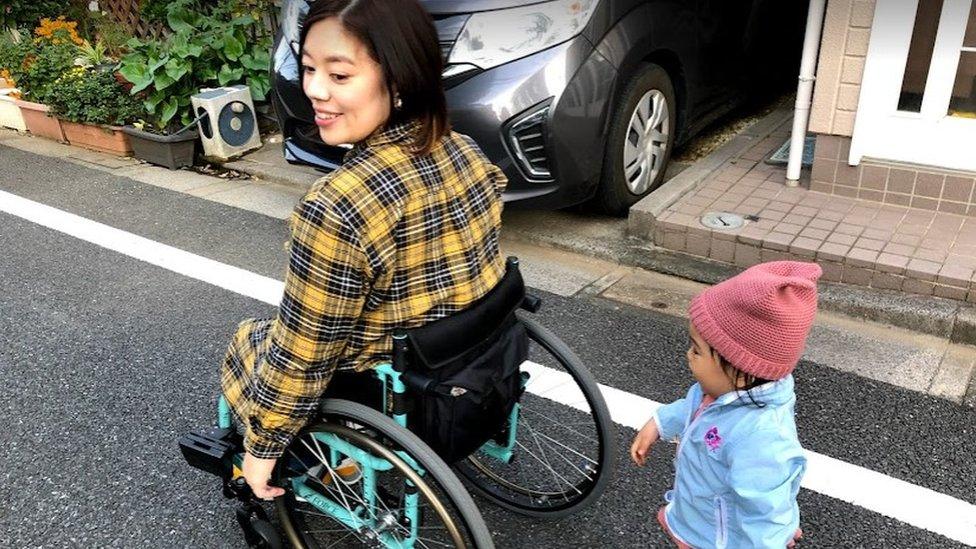
In the 90s, Mizuki's parents didn't want her to go to a special school, instead, they got her into a local mainstream school, but they had to compromise on accessibility.
Mizuki's classes were often on different floors and the school didn't have a lift.
While it fitted handrails up the staircases, "I had to go up and down stairs by myself," Mizuki says. This meant hauling herself up by the arms.
Her parents also provided a wheelchair for every floor of the school so Mizuki could get around with her classmates, independently
Two decades on, Mizuki is a mother herself and the problem has come full-circle. It was almost impossible to find a nursery where she was able to go inside and drop off her children because of stairs, and ramps which were too steep.
"It was a very difficult and challenging time, but fortunately I found one. They are very supportive, but it is the only one."
Job quotas and bonuses
Across the world, disability employment tends to be low and many solutions have been tried. A simple quota system is a common solution, which is what Japan uses, but as the UK discovered decades ago, it causes new problems.
In Japan, if a company has more than 43.5 employees, 2.3% of them must be disabled.
The figures are recorded and fines issued to those who don't comply and given as bonuses to those who do.
Critics of the system say it leads to a focus on disability rather than skills and misses the point about inclusion.
"I had so many job interviews with so many companies," Mizuki remembers of her job search. Often companies would request her disability passport to look at her workplace needs before deciding whether to proceed.
She believes the quota is a good opportunity to get into work but adds: "Certain jobs are often carved out for the disabled employees - and that often means low skills and low pay."
Mizuki says her current job at Google was a different and fairer experience and she wasn't asked about being disabled.
Josh works in PR for the Azalee Group which runs a care home, but he feels that "too much emphasis" is put on employers to pay for reasonable adjustments for their disabled staff.
He says it means those disabled people who don't need workplace adaptations could "become favourites" because they are easier and cheaper to accommodate.
Why bullet trains are a drag
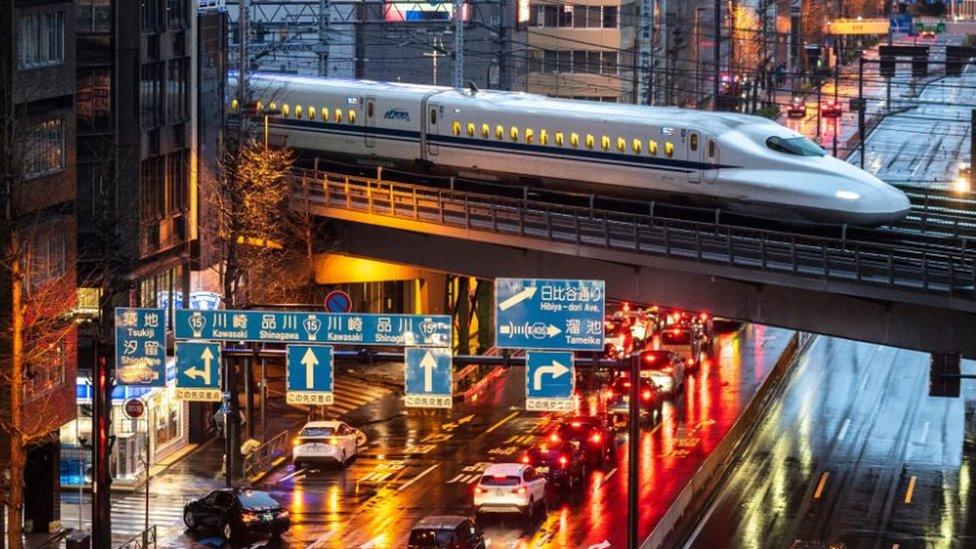
Japan committed to making its transport hubs 100% accessible as part of its Games bid.
And about 96% of Tokyo's train stations are now accessible after a law was passed to ensure that any station with 3,000 daily users could be used by everyone.
Ramps make rail travel easier but when it comes to travelling on the much-revered bullet trains, Mizuki says it can be a drag.
Booking a wheelchair space needs to be done a month or two in advance. "I prefer airplane travel," she says, although concedes newer trains have more wheelchair spaces.
The future of stairs
You can't think of Japan without thinking about its love of technology - behold the Accessible Elevator (I too thought it would have a better name).
This nifty invention temporarily brings three steps of an escalator together to create a flat platform that wheelchair-users can get on.
Josh unflatteringly describes it as an "engineering novelty".
"I find it quite terrifying because I'm always afraid that my wheelchair is going to go flying off," but when an accessible route is needed, this does the trick, he admits.
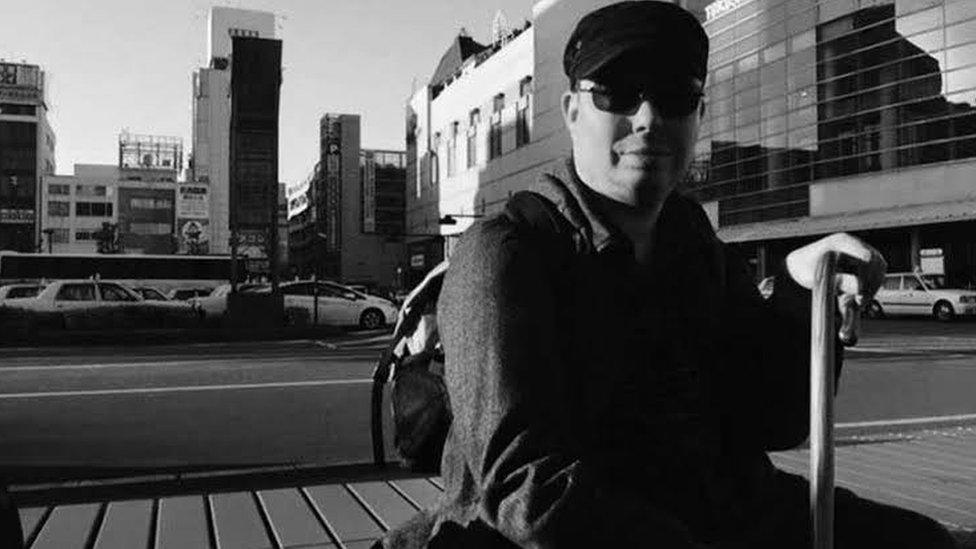
Michael Gillan Peckitt says Japan was greatly impacted by the attack on the care home
The Sagamihara Stabbings
There is tragedy in Japan's recent history that cannot go unmentioned - the Sagamihara Stabbings.
In 2016 Satoshi Uematsu broke into a care home for disabled people in Sagamihara, where he had worked, and killed 19 residents.
Previously, he had written to politicians saying he wanted disabled people to "disappear".
As well as the immediate and obvious tragedy, there was another - many of the victims' families did not want their relatives named.
Some speculated this was due to the shame of having a disabled relative, others thought they didn't want it known they had put a family member in a care home because they felt they had failed them.
Michael Gillan Peckitt an English academic who lives in Kobe and has cerebral palsy, says: "Initially, it had a big effect on Japan. For quite some time the media were raising questions about attitudes towards disabled people and the care system. But time passes, people move on.
"It is difficult to keep the issue alive if the families don't want the names of the victims to be named."
Uematsu was sentenced to death.
Signed with a X

Eiko Kimura has long advocated for better integration of disabled people
In other ways, Japan is forward-thinking. In 2019 it elected Yasuhiko Funago and Eiko Kimura of the Reiwa Shinsengumi Party into parliament. Both are disabled and use careworkers.
On their first day the pair were mobbed by the media as they arrived in their reclining wheelchairs.
In January this year, Funago cast a vote in-person at the House of Councillors after a ramp was built into the Upper House. Previously, he relied on a non-disabled staff member to cast it.
Afterwards, they said in a statement, external: "It is a very moving experience to be able to directly vote our thoughts."

Related topics
- Published16 March 2020

- Published1 August 2019
